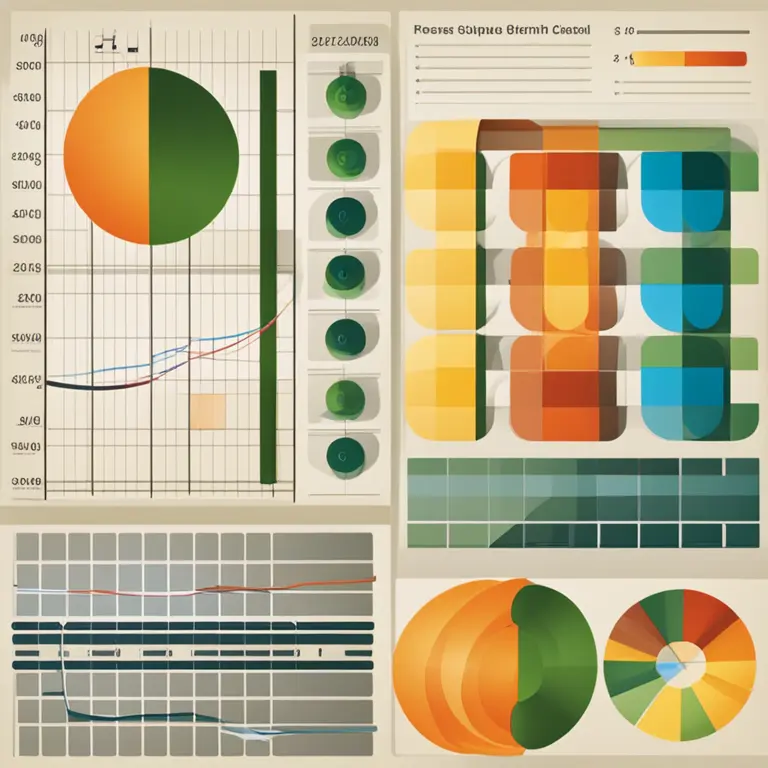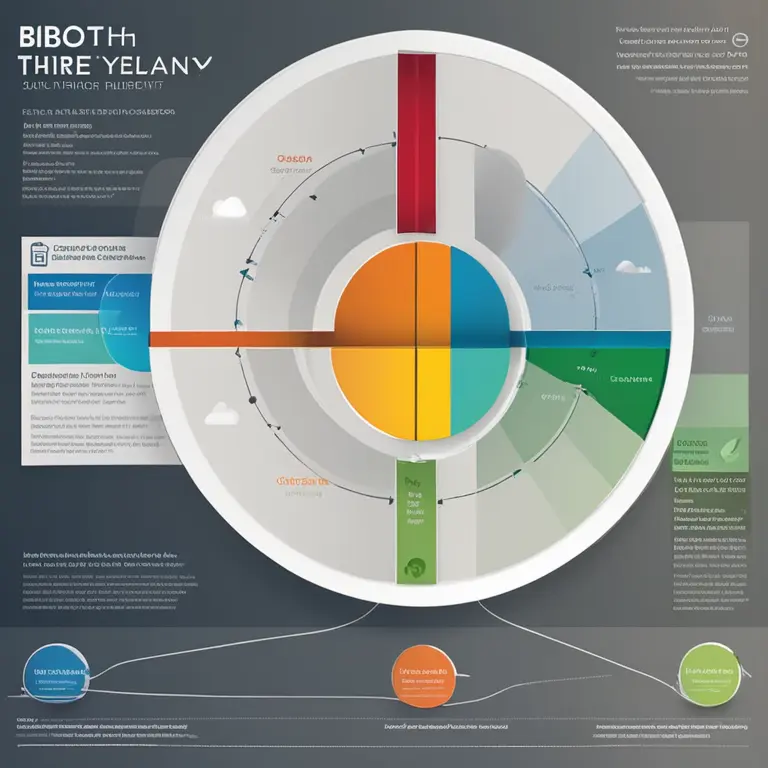
The Essence of Biorhythms: Life’s Natural Rhythms
Delve into the world of biorhythms to discover the natural cycles that influence your physical, emotional, and intellectual states.
article by Adrian Wallace
Introduction to Biorhythms
The concept of biorhythms paints a fascinating picture of our physiological and psychological landscape by suggesting that our lives are influenced by rhythmic cycles. Originating from the Greek words 'bios', meaning 'life', and 'rhythmos', meaning 'regularly recurring movement or pattern,' biorhythms assert that three fundamental cycles govern our body's functions: the physical, emotional, and intellectual. According to biorhythm theory, from the moment of birth, these cycles start oscillating between positive and negative phases, impacting how we perform, feel, and think on any given day. This article offers an insightful look into the meaning of biorhythms and how acknowledging their existence could benefit our daily lives.

The Three Core Cycles
Central to biorhythm theory are the three core cycles. The Physical Cycle, spanning 23 days, governs our stamina, coordination, and strength. During the positive phase, we may feel at the peak of our vigor, while the negative phase might render us more prone to physical exhaustion and clumsy mistakes. The Emotional Cycle, lasting 28 days, resembles the lunar month and influences our mood, creativity, and perception of the world. When it peaks, our emotional intelligence feels enhanced, whereas the trough can leave us susceptible to mood swings and pessimism. The Intellectual Cycle, with a 33-day period, touches upon our analytical abilities, memory, and communication skills. In the ascendant phase, our minds are sharp, while a decline could cloud our judgement and focus. Understanding these patterns might enable individuals to schedule important tasks or decisions according to their personal biorhythmic calendar.

Calculating Personal Biorhythms
To harness the predictive power of biorhythms, one must calculate their unique cycles, which begin at birth. Numerous online calculators and smartphone apps now exist to help individuals plot their biorhythmic charts. By inputting one's date of birth, these platforms will render a graphical representation of the three cycles, often including additional secondary rhythms like the spiritual, intuitive, aesthetic, and others that some proponents of biorhythms believe exist. This personalized data can then inform users about their current phases and potentially guide them in planning day-to-day activities.

Scientific Scrutiny and Skepticism
While the concept of biorhythms is embraced by many, it has faced criticism and skepticism from the scientific community. Studies have yet to conclusively support the existence of biorhythmic patterns or their alleged effects on human behavior and performance. Detractors argue that any positive outcomes attributed to biorhythm awareness are more likely due to the placebo effect or confirmation bias. As such, while biorhythms might offer an intriguing way to reflect on life's patterns, it is important to approach such predictions with a discerning mind and an understanding of the ongoing debate surrounding their validity.

Biorhythms in the Modern Age
Despite skepticism, interest in biorhythms persists, with the digital age offering new avenues for their exploration and application. As we move further into the 2020s, technology continues to evolve, potentially opening doors for more in-depth research and sophisticated algorithms that might one day validate or more compellingly refute the assertions of biorhythm theory. In the meantime, many find value in the introspective process that arises from considering the ebb and flow of their physical, emotional, and intellectual capacities. It becomes a tool for self-awareness rather than a deterministic guide.
Integrating Biorhythms into Daily Life
Those who follow biorhythms often report greater mindfulness about their actions and decisions, reinforcing the idea that our sense of well-being can benefit from attention to cycles. Whether it's about choosing the best days to embark on new ventures, initiating important conversations, or scheduling rest and recovery, paying attention to one's biorhythms can foster a sense of harmony with the body's natural processes. While one should remain mindful of the lack of solid scientific endorsement, there's potential value in any practice that encourages reflective engagement with one's health and happiness.
Concluding Thoughts
While the definitive scientific acceptance of biorhythms remains elusive, the concept continues to captivate those who prefer a more holistic approach to wellness and personal optimization. Whether through curiosity, a desire for greater self-knowledge, or as part of a larger interest in esoteric sciences, the journey into understanding our biological rhythms can be a rewarding one. As with any system of belief or self-exploration, an open mind paired with critical thinking is the best approach to fully appreciate and understand the potential impacts of biorhythms on our lives.
Published: 1/25/2024
Modified: 1/25/2024
More predictions
Come back here soon to learn more about yourself and your future


The Rhythms Within: Biorhythm Horoscope Insights
Tap into the cosmic wisdom of biorhythms to understand your emotional, physical, and intellectual cycles for enhanced well-being and foresight.


The Intersection of Biorhythms & Astrology Explored
Discover the link between biorhythms and astrology to gain insights into your life's patterns and potential.


The Biorhythm Debate: Effective Insight or Myth?
Discover the realities behind biorhythms, how they're calculated, and their impact on daily life. Can these biological cycles truly predict our physical, emotional, and intellectual states?